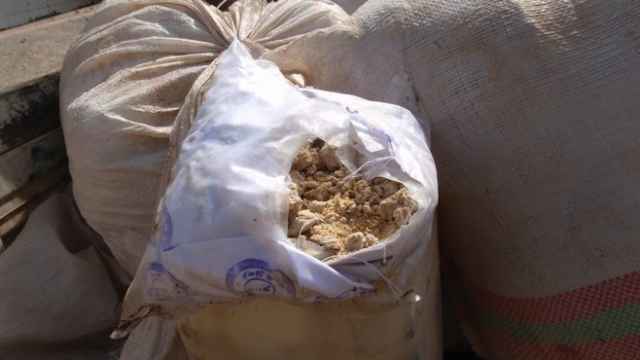A controversial organization run by the renegade mayor of Yekaterinburg and known for its unorthodox and at times brutal approach to combating drug addiction has been ordered to pay out nearly a million rubles ($25,000) in back-rent.
City Without Drugs has gained international notoriety for its vigilante-style pursuits. The New York Times published a feature on the group in 2011 claiming that its activists confine unwilling junkies to bunk beds, forcing them to get clean with little more than gruel and the passage of time. Prior to that, the organization had generally handcuffed addicts to their beds, according to the report.
The foundation was established in 1999 by Yekaterinburg's current mayor, Yevgeny Roizman, who vowed in comments to Interfax on Wednesday that he would appeal the back-rent decision, arguing that the organization should receive preferential treatment due to the nature of its work.
In December 2013, after months without a rent check for the group's Yekaterinburg facility, the Sverdlovsk region's Public Assets Ministry filed a complaint with a commercial court to compel the foundation to pay up. In February, that lawsuit was shelved when the foundation filed a countersuit seeking preferential terms for the rent due to the organization's ongoing war on drugs.
"The foundation isn't refusing to pay the rent. But we have a legal basis to get preferential terms, since this is the only organization working with children who have drug problems. I think we will find a way out of this situation," Roizman was cited as saying.
After a court ruled against the City Without Drugs countersuit in August, however, the region's original lawsuit to obtain overdue rent was re-opened. Roizman has frequently butted heads with Sverdlovsk authorities since establishing City Without Drugs.
In July, he was questioned by police in connection with the killing of an 80-year-old pensioner, but was not charged in the case.
During the Yekaterinburg mayoral campaign last year, Sverdlovsk region prosecutors threatened to investigate Roizman's alleged ties to an organized crime ring called Uralmash after a state-run television channel ran an exposО claiming he was receiving support from the group in the race.
Contact the author at a.quinn@imedia.ru
A Message from The Moscow Times:
Dear readers,
We are facing unprecedented challenges. Russia's Prosecutor General's Office has designated The Moscow Times as an "undesirable" organization, criminalizing our work and putting our staff at risk of prosecution. This follows our earlier unjust labeling as a "foreign agent."
These actions are direct attempts to silence independent journalism in Russia. The authorities claim our work "discredits the decisions of the Russian leadership." We see things differently: we strive to provide accurate, unbiased reporting on Russia.
We, the journalists of The Moscow Times, refuse to be silenced. But to continue our work, we need your help.
Your support, no matter how small, makes a world of difference. If you can, please support us monthly starting from just $2. It's quick to set up, and every contribution makes a significant impact.
By supporting The Moscow Times, you're defending open, independent journalism in the face of repression. Thank you for standing with us.
Remind me later.





